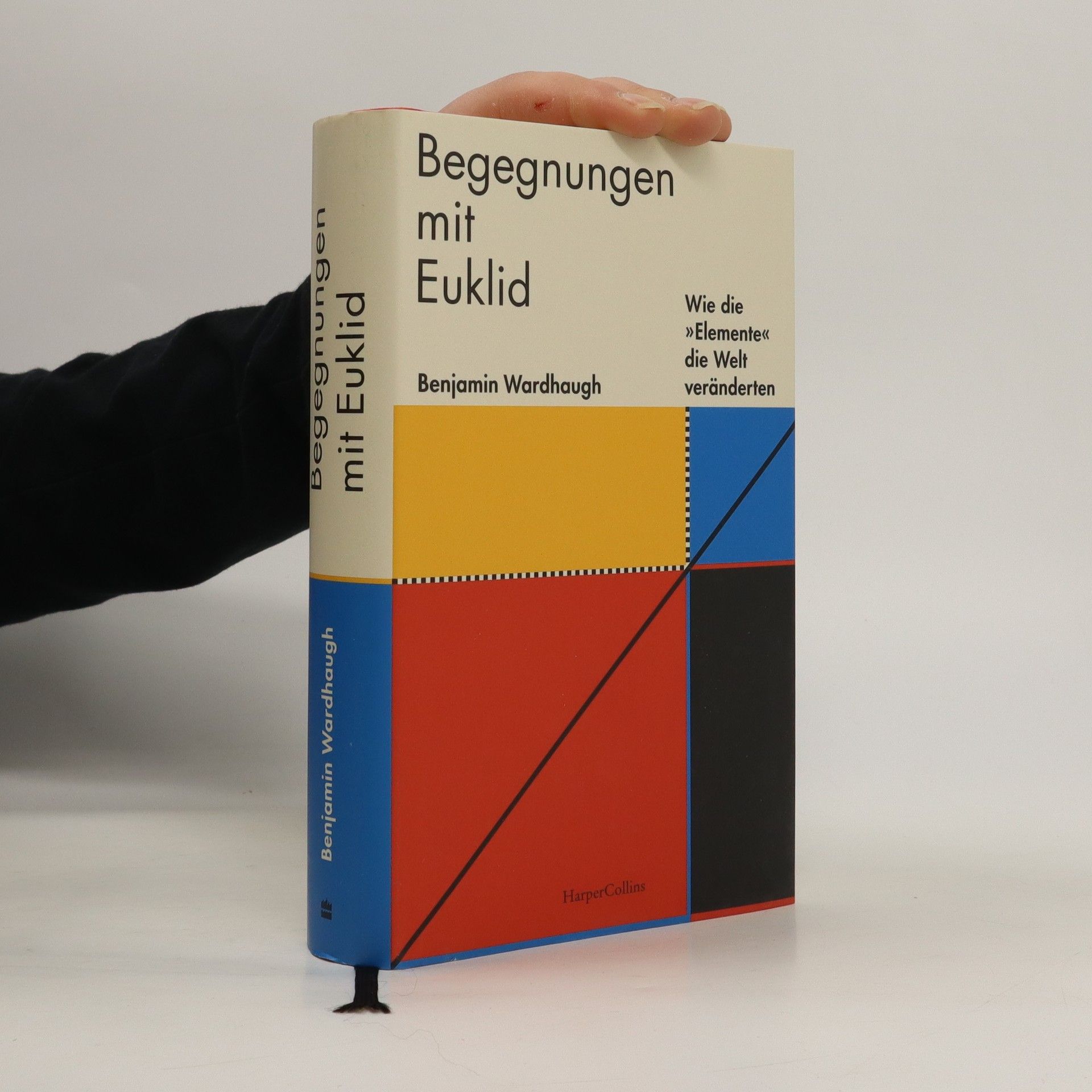Euclid's Elements of Geometry was a book that changed the world. In a sweeping history, Benjamin Wardhaugh traces how an ancient Greek text on mathematics - often hailed as the world's first textbook - shaped two thousand years of art, philosophy and literature, as well as science and maths.
Benjamin Wardhaugh Knihy






WHAT DOES IT MEAN TO COUNT? WHY ARE HUMANS THE ONLY SPECIES ON EARTH THAT CAN DO IT? WHERE DID COUNTING COME FROM? HOW HAS IT SHAPED SOCIETIES ALONG THE WAY? AND WHY DOES IT MATTER?
'An astonishingly readable and informative history of the greatest mathematical bestseller of all time ... The writing is vivid and the stories are gripping. Highly recommended ' IAN STEWART, AUTHOR OF SIGNIFICANT FIGURES
Gunpowder and Geometry
- 320 stránok
- 12 hodin čítania
August, 1755. Newcastle, on the north bank of the Tyne.
What does it mean to count, and why are humans uniquely capable of this? This exploration delves into the origins and significance of counting, revealing how it has influenced societies throughout history. Acclaimed historian and mathematician Benjamin Wardhaugh embarks on a captivating journey through the diverse history of human counting, from the Stone Age to the digital age. Beginning with the roots of counting in our brains and environments, Wardhaugh takes us on a global tour, highlighting the various forms of counting that have emerged over millennia. We encounter ancient South African bead makers, the inventors of writing in the first metropolis, and the counting practices of classical Athens. The narrative also features the transformative use of counting by Indian scholars, Chinese peasants, and Papuan shopkeepers, as well as the unique numerate agendas of Mayan kings, US governments, and Korean vloggers. Through these interconnected stories, Wardhaugh illustrates the reciprocal relationship between culture and counting, showcasing how each has shaped the other over thousands of years. This rich tapestry reflects humanity's enduring quest to impose order on a chaotic world, revealing a history as intricate and profound as humanity itself.
Thomas Salmon: Writings on Music
Volume I: An Essay to the Advancement of Musick and the Ensuing Controversy, 1672-3
- 290 stránok
- 11 hodin čítania
The book explores the tumultuous exchange between Thomas Salmon and Matthew Locke, sparked by Salmon's 1672 work, the Essay to the Advancement of Musick. It delves into the intense and often humorous pamphlet war that ensued, highlighting not only the personal animosities but also the broader implications for musical discourse in the 17th century. Through this conflict, the book reveals insights into the musical theories of the era and the personalities involved, showcasing the intersection of art and rivalry in early music criticism.
Thomas Salmon: Writings on Music
Volume II: A Proposal to Perform Musick and Related Writings, 1685-1706
- 208 stránok
- 8 hodin čítania
Focusing on the latter part of Thomas Salmon's work, this volume delves into his exploration of musical pitch reform. Salmon, known for his innovative ideas on musical notation, challenges existing concepts and raises thought-provoking questions about the nature and structure of musical pitch. His writings reflect a deep engagement with the theoretical aspects of music, aiming to inspire new approaches and understanding in the field. This collection captures the essence of his contributions to music theory during a transformative period.
John Wallis, a prominent British mathematician of the seventeenth century, is celebrated not only for his mathematical contributions but also for his writings on grammar and logic. His passion for music theory spurred him to translate significant ancient Greek texts by Ptolemy, Porphyry, and Bryennius into Latin, showcasing his interdisciplinary interests and involvement in scholarly discussions of his time.
Euklid auf den Fersen – eine grandios erzählte Reise zu den Anfängen der Mathematik Seit dreiundzwanzig Jahrhunderten prägen Euklids »Elemente« die Welt. Die Zusammenstellung von Fakten über den Raum und seine Eigenschaften – Linien und Figuren, Zahlen und Verhältnisse – bestimmen bis heute Philosophie, Kunst, Musik, Literatur und Mathematik. Dreizehn Bände, die nicht nur Wissenschaftsgeschichte schrieben, sondern auch zu ersten globalen Bestsellern wurden. Benjamin Wardhaugh entstaubt Euklids Vermächtnis und begibt sich auf eine Zeitreise. Von Ptolemaios bis Isaac Newton, von Lewis Carroll bis Max Ernst – hautnah erleben wir den Einfluss der »Elemente« auf die jeweilige Zeit und ihre Protagonisten. Die spannende Geschichte über das Grundlagenwerk menschlichen Wissens.
Die unglaubliche Geschichte von Charles Hutton – vom Grubenjungen zum begnadeten WissenschaftlerEngland, 1755: Als Sohn eines Schichtmeisters wächst Charles Hutton in den Bergwerken Newcastles auf. Die industrielle Revolution ist in vollem Gange und Kinderarbeit an der Tagesordnung. Mit acht Jahren beginnt auch Charles, in den Kohlegruben zu arbeiten, doch ein Unfall rettet ihn. Eine Zeit lang darf er deswegen die Schule besuchen, erkennt seine Begabung für Mathematik und fängt Feuer.Er verschlingt die Werke Newtons, besucht weiterführende Abendkurse, verfasst schon bald eigene Lehrbücher und publiziert mathematische Rätsel in den damals beliebten Unterhaltungsmagazinen The Gentleman’s Diary und The Ladies’ Diary.Nebenbei arbeitet er als Landvermesser, erfindet die Höhenlinien und bekommt eine Stelle an der Königlichen Militärakademie, für die er Newcastle hinter sich und seiner Liebe zum Schießpulver freien Lauf lässt …Eine Bildungsgeschichte, die ihresgleichen sucht.»Die Mathematik bildet die Grundlagen unserer Gesellschaft. Dieses wundervolle Buch beleuchtet endlich, warum dem so ist.«New Scientist»Benjamin Wardhaugh erzählt die fast unglaubliche Geschichte eines Kohlejungen, der zum größten Mathematiker seiner Zeit und zu einer nationalen Berühmtheit wurde. Mit Stil und Esprit erweckt er sowohl das georgianische Zeitalter als auch die Ära der Kohleindustrie zum Leben.«Matt Ridley
